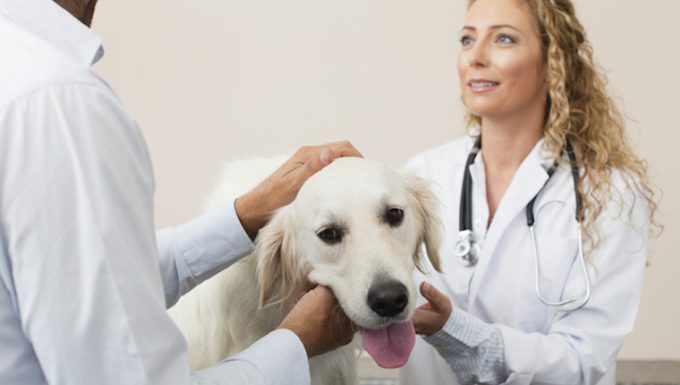Muscle contraction disease in dogs is a type of seizure. The cause of the condition usually involves a dog’s nervous system.
Thankfully, the condition is quite rare in dogs. Also, dogs remain conscious during the condition.
Usually, the presence of bright flashing lights or loud sounds can trigger the condition.
Technically, the condition is also known as myoclonus in dogs.
If you see the signs of the condition in your dog, then get to a veterinarian for a proper diagnosis and treatment.
Here’s what you should know about the symptoms, causes, and treatments for the condition.
Symptoms of Muscle Contraction Disease in Dogs
The condition produces a number of symptoms. For example, some of the most common symptoms include:
- Making high-pitched noises
- Twitching
- Muscles contracting
- Head jerking
- Seeming to bounce
Causes of Muscle Contraction Disease in Dogs

The cause of the condition is often a dog contracting the distemper virus. This happens when a dog comes into contact with another dog or infected animal who has the virus.
Additionally, the following factors can cause the condition:
- Bright lights
- Loud sounds
- Trauma to the head
- Trauma to the spine
- Lead poisoning
Finally, certain breeds can be predisposed to the condition. For example, both Dalmatians and Labrador Retrievers suffer from the condition more than usual.
Treatments for Muscle Contraction Disease in Dogs
Firstly, your vet will ask about your dog’s symptoms. Secondly, your vet will ask about any circumstances where your dog could have picked up a case of canine distemper. Thirdly, your vet will ask about your dog’s full medical history. This will include breed-specific problems.
Fourthly, your vet will carry out a full physical examination. Blood and urine tests will be taken. The subsequent results of the tests can diagnose the condition. Additionally, an MRI can help highlight the condition.
Generally, treatment will target the underlying cause of the condition. For example, anti-inflammatory medication can help if your dog’s brain or spine are inflamed.
Finally, switching your dog’s diet can also help. In many cases, changing to a low carbohydrate diet can help. Your vet will formulate a safe and nutritious diet for your dog.
Have you ever cared for a dog who suffered from this condition? How did your vet help your dog recover? Let us know in the comments section below.








